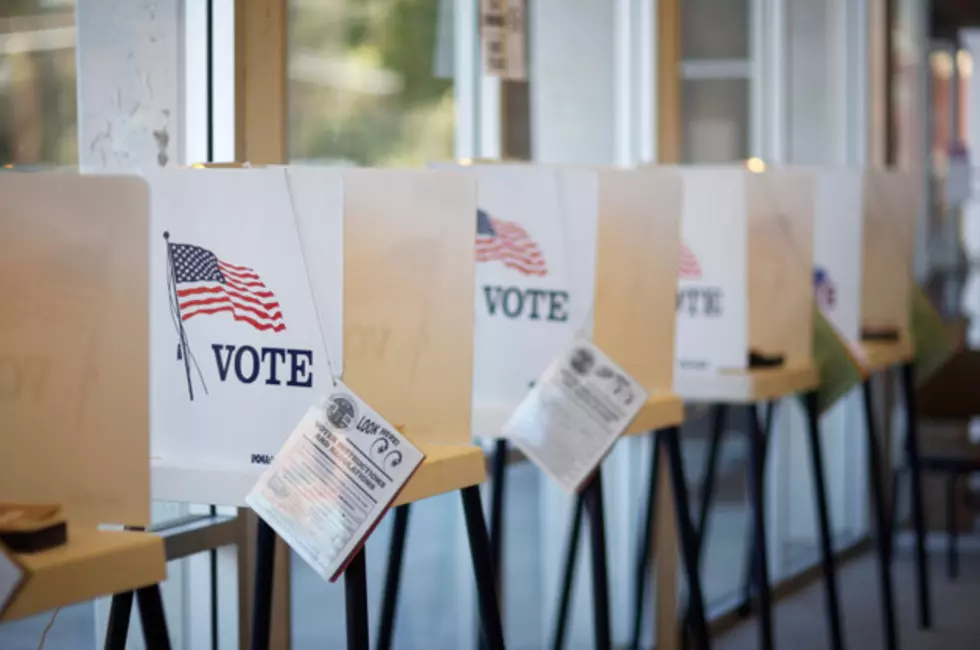
‘Looking at a record low turnout’ for Tuesday’s gubernatorial election
How low can voter turnout go?
Participation in New Jersey elections has been a reverse auction of sorts in recent years, the numbers dropping every round.
Here’s the trend in gubernatorial elections:
- 65 percent in 1993
- 56 percent in 1997
- Just over 49 percent in 2001
- 48.5 percent in 2005
- 47 percent in 2009
- Under 40 percent in 2013
Seemingly every political analyst thinks it will plunge even further Tuesday.
“We’re looking at a record low turnout,” said Monmouth University poll director Patrick Murray. “I think based on past turnout, based on what folks are telling us they’re going to do this time around, there’s significantly less interest in this election, that turnout is probably going to be somewhere in the 37 to 38 percent of registered voter territory.”
Rider University political scientist Ben Dworkin predicts even less.
“Turnout still is going to be pretty low. We’re expecting around 35, 36 percent overall turnout across the state on Nov. 7,” Dworkin said.
Given that New Jersey has 5.75 million registered voters, a turnout of 35 percent would mean a little over 2 million people would participate. That would be the fewest votes cast in a New Jersey governor’s race since 1985, when the state had almost 2 million fewer voters than it does now.
“This is a race that’s just generating no interest at all,” Murray said.
In a low-interest election like the gubernatorial race, spending by candidates and political parties on get-out-the-vote efforts can take on added importance.
Montclair State University political scientist Brigid Harrison says that could be an advantage for Democrat Phil Murphy, whose campaign entered the final 11 days of the election with $3.5 million cash on hand to Republican Kim Guadagno’s $632,000.
“It’s going to be a low turnout election, but I believe that in some places pockets of supporters will be mobilized effectively,” Harrrison said.
Around the country this year in special congressional and legislative elections, voter turnout generally has been unusually high. There have been 52 special elections for state legislative seats around the country this year – with Democrats flipping eight GOP-held seats to their side, and Republicans shifting one to their column.
Part of the surge in turnout, and gains by Democrats, has been attributed to voter reaction to President Donald Trump. But political analysts doubt there’s going to be an anti-Trump resistance surge in Tuesday’s election in New Jersey.
“Largely because it’s not the first few months of the Trump administration,” Dworkin said. “We’re not talking about this is going to be 11 months into the Trump presidency, and some of that fervor has tamped down.”
The flip side of the Trump phenomenon will similarly not be in play – the participation of loyalists who don’t typically vote but feel connected with the president. Don’t expect them to turn out in droves either, Murray said.
“Because Donald Trump isn’t on the ballot,” Murray said. “That’s really the bottom line, is that we’re not going to see the kind of surprise turnout that happened in places like Michigan and Pennsylvania and Wisconsin last year here in New Jersey, in large part, simply because Donald Trump is not part of the equation in terms of what voters would actually get to do.”
Murray does think Trump is the reason voter turnout will hit a new low.
“The thing is that there’s a finite amount of space that people can think about politics in their head, and for most voters it’s taken up by President Trump and Washington, D.C.,” Murray said.
Murray said polls have reinforced the conventional wisdom that Republican Chris Christie will be replaced by a Democrat. Only the tried-and-true voters will come out – and they’ll stick with their party, even if the candidates are relatively unknown.
“Unaffiliated voters only go out to vote in presidential elections, they don’t show up for these kinds of votes. It’s not like there are swing voters out there that you can swing,” Murray said. “It’s just a real Democratic environment here right now.”
New Jersey: Decoded cuts through the cruft and gets to what matters in New Jersey news and politics. Follow on Facebook and Twitter.
Michael Symons is State House bureau chief for New Jersey 101.5 and the editor of New Jersey: Decoded. Follow @NJDecoded on Twitter and Facebook. Contact him at michael.symons@townsquaremedia.com
More From New Jersey 101.5 FM









